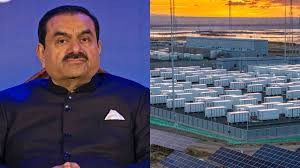Hyundai Motor India Reports 4% Dip in Q4 Net Profit, Declares ₹21 Dividend Per Share

IIE DIGITAL DESK : May 16, 2025 — Hyundai Motor India, the country’s second-largest car manufacturer by volume, posted a marginal decline in its net profit for the fourth quarter of the financial year 2024–25, signaling a challenging operating environment despite robust product demand. The company announced a nearly 4% drop in its net profit year-on-year, even as it declared a final dividend of ₹21 per equity share for its shareholders.
In its financial results declared on Thursday, Hyundai revealed that its consolidated net profit for the January-March quarter stood at ₹2,850 crore, compared to ₹2,966 crore during the same quarter last year. The dip in profits was attributed primarily to rising input costs, continued volatility in global supply chains, and currency fluctuations, which collectively weighed on the company’s margins.
Revenue from operations, however, showed resilience. Hyundai reported a modest increase in quarterly revenue, clocking in at ₹21,300 crore, up from ₹20,750 crore in the same period last year. This uptick was driven by strong sales across key models such as the Creta, Venue, and the recently launched Exter compact SUV, which have continued to perform well in both domestic and export markets.
Hyundai’s management remained optimistic despite the profit dip, emphasizing that the company is navigating a phase of heavy investment and strategic expansion. The announcement of a ₹21 dividend per share was seen as a reaffirmation of Hyundai’s commitment to shareholder returns, even as it channels significant resources into capacity expansion and electric vehicle (EV) infrastructure.
Commenting on the results, a senior Hyundai executive noted, “While the macroeconomic environment has presented some headwinds, including inflationary pressures and elevated commodity prices, our fundamentals remain strong. The Indian automotive market continues to show long-term promise, and Hyundai is committed to being a leader in this transformation.”
The fourth quarter also saw Hyundai continuing its aggressive push toward electrification and sustainable mobility. The company recently laid the foundation for its first dedicated EV plant in Tamil Nadu, a move that aligns with its ambition to roll out six electric models in India by 2028. This strategic pivot to EVs, while capital-intensive in the short term, is expected to enhance Hyundai’s competitiveness and brand equity in the years ahead.
On the operational side, the company reported steady wholesale numbers with over 1.6 lakh units sold during the fourth quarter, a year-on-year growth of nearly 5%. Exports remained stable, buoyed by growing demand in Latin America and Southeast Asia. However, the rising costs of freight and logistics did erode some of the gains from overseas markets.
Industry analysts say the dip in Hyundai’s Q4 profit is consistent with broader sectoral trends, where most automakers have faced margin compression despite high sales volumes. The twin challenges of cost inflation and the gradual transition to more capital-intensive EV production are being felt across the industry.
Looking ahead, Hyundai is expected to maintain a cautious but forward-looking stance. With the Indian government offering continued support for EV adoption and infrastructure development, Hyundai’s ongoing investments are likely to yield long-term rewards. Market watchers will also be paying close attention to the company’s IPO plans, which are reportedly under consideration and could be one of the biggest auto sector listings in recent years.
As Hyundai Motor India balances short-term profitability with long-term strategic goals, its performance in the coming quarters will serve as a bellwether for the evolving dynamics of India’s auto industry in the post-pandemic, electric-first era.
You might also like!
















